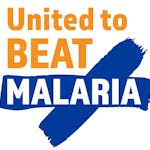Young people still need access to contraception – even during a pandemic. In Cameroon, Dr. Ngong Jacqueline Shaka works to safeguard access despite the impact COVID-19 is having on essential and emergency health services. We can protect vulnerable people from further harm when we #UniteforHealth.
Young people have sex. And that won’t stop during a pandemic. “It doesn’t for adults, so why would it for young people?” says Ngong Jacqueline Shaka, a clinical doctor in Cameroon.
Dr. Shaka says the pandemic has highlighted existing issues in how health systems treat young people, especially around sexual and reproductive health and rights. Even though young people seem to be less affected by COVID-19’s physical symptoms, this pandemic is still taking a much larger toll on communities, like the young, that were already marginalized in ways that highlight how health systems around the world were underprepared and unequal.
Young people have often reported challenges in obtaining contraceptives, and those challenges have been amplified as countries mobilize their limited health resources to stem the spread of COVID-19. While battling the pandemic, they are also attempting to sustain basic services, including sexual and reproductive health services.
In many cases, Dr. Shaka says, young people have been overlooked in countries’ responses to COVID-19. There is little or no acknowledgment of their particular vulnerabilities and little that guarantees their access to a full range of contraceptive options during the crisis.
A rise in unintended pregnancy
Experiences with similar crises, such as the Ebola outbreak in West Africa, suggest that COVID-19 will make young people vulnerable to unintended pregnancy, in part because they will not be able to obtain a contraceptive method from a health facility due to risk of transmission or infection, or sometimes health system breakdowns.
Additionally, young people are at increased risk of sexual violence during crises, including pandemics, which also increases the risk of unintended pregnancies. Domestic violence against women around the world has increased — in some countries by up to 30% — because women spend more time with their abusers during lockdowns.
For Dr. Shaka, these risks are already becoming a reality. “I’ve seen more pregnant teens in my practice,” she says, “with one-third of antenatal clinic attendees being adolescents under the age of 18. I’ve also seen more cases of unsafe abortion among adolescents.”
None of us is safe until we are all safe
When sex is coerced, forced, or transactional, it is rarely reported. In such cases, contraceptive use is often not an option, and it underscores why easy access to over-the-counter methods, including emergency contraception, is important to help young women prevent unintended pregnancy and unsafe abortion.
In Bamenda, where Dr. Shaka works, young people are experiencing crisis on two fronts: first, a long-standing political conflict that has created a surge of adolescents and young people fleeing their homes for urban areas that are ill-prepared to meet their social and health needs; and second, the consequences of their displacement have been amplified by COVID-19, as schools close and families struggle to make ends meet.
Sexual and reproductive health is one of the many health issues across the globe at risk of backsliding as a result of the COVID-19 pandemic. It shows how none of us is safe until we are all safe. Strengthening health systems, especially during a crisis like this pandemic, can reduce the burden on people already on the edge of society, and help us all recover better.
We are all safer and stronger when we #UniteforHealth. Support the UN Foundation’s work to deliver health for all.
Thanks to FP2020 for contributing this story.




 View All Blog Posts
View All Blog Posts


